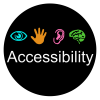The open source and closed sourced worlds need each other—not only for healthy competition, but more importantly, for healthy collaboration, too. Mukesh Sharma looks at recent collaborative efforts between the open source and closed source communities and what is driving these changes.
As founder and CEO of QA InfoTech Worldwide, Mukesh is responsible for the company's vision and leads the organization's worldwide operations, marketing, sales, and development efforts. He founded QA InfoTech with a vision to provide unbiased Quality Assurance (QA) testing solutions and has grown the organization to four Centers of Excellence globally.
Mukesh has a passion for excellence, an eye for detail, and commitment toward customers, and he blends it with an execution style that has the maturity of an established organization with the nimbleness of a startup. These together have enabled QA InfoTech to stand apart in the exceedingly competitive software testing industry. Under his guidance, the company has contributed to various innovative quality assurance and test-automation solutions.
Mukesh continues to actively evangelize software testing as a career and its indispensable aspects in today’s world of software engineering. He has authored three books in these areas to benefit testers and engineers at all levels: Are You Smart Enough To Be A Tester?, Leverage The Wisdom of the Crowd in Software Testing, and Software Testing 2020: Preparing for New Roles.
Mukesh holds a Master of Science and Technology in Information Systems from Birla Institute of Technology and Science (BITS), Pilani, India, as well as a Master of Engineering in Engineering Management from University of Colorado, Boulder, USA. Mukesh is an avid reader, golfer and cricket player, as well as a philanthropist who takes a personal interest in the organization’s CSR initiatives.
All Stories by Mukesh Sharma
Organizations are beginning to give a lot of attention and importance to accessibility engineering as part of their usability efforts; however, this has not translated into implementation strategies that have reached the market. Why is there a reluctance to venture into full-fledged accessibility engineering?
Rooting may help you achieve a few otherwise difficult-to-simulate scenarios, but it comes with its own baggage that can weigh down potential benefits. Testers have to carefully weigh the pros and cons and the true need to root a device for a testing assignment before doing so.
Day-to-day testing techniques, strategy, approach, and automation are all things that teams understand and will continue to implement, but how many teams understand the elements of purpose, belonging, transcendence, and storytelling as they apply to software quality?
Trends are very important to follow, especially in the technology world, for both product and service companies. Mukesh Sharma explains the technology trend lifecycle and what it means for testers.
While end user data protection is important from a business to customer perspective, businesses themselves have their share of data protection problems. Organizations need to find the balance between being in a stealth mode and being too public during product development.
With close to $9 billion being funneled into virtual reality investments in the last five years and the number of users buying these devices continuing to rise, the augmented reality (AR) and virtual reality (VR) sectors are important areas in which testers should focus their efforts.








